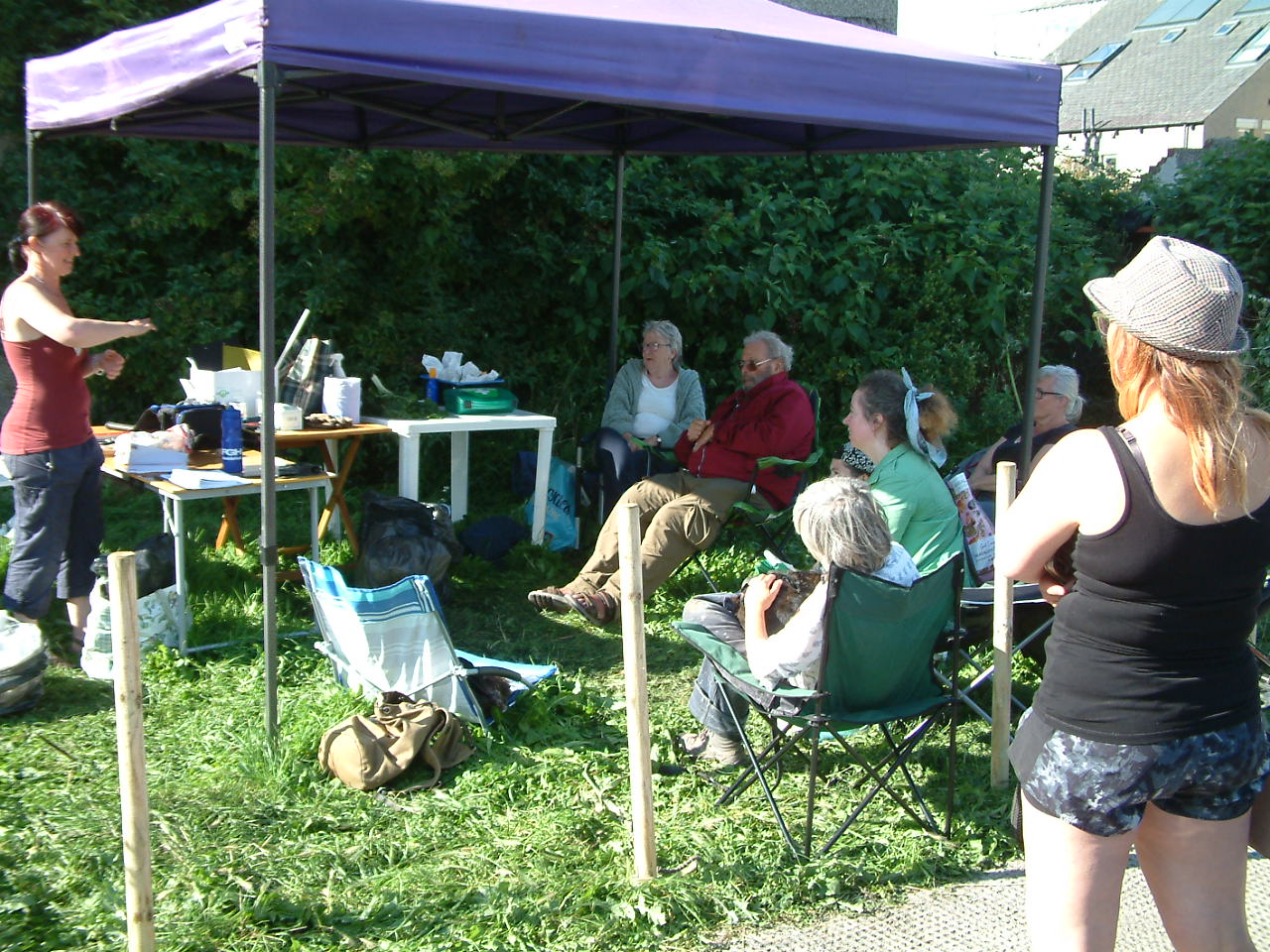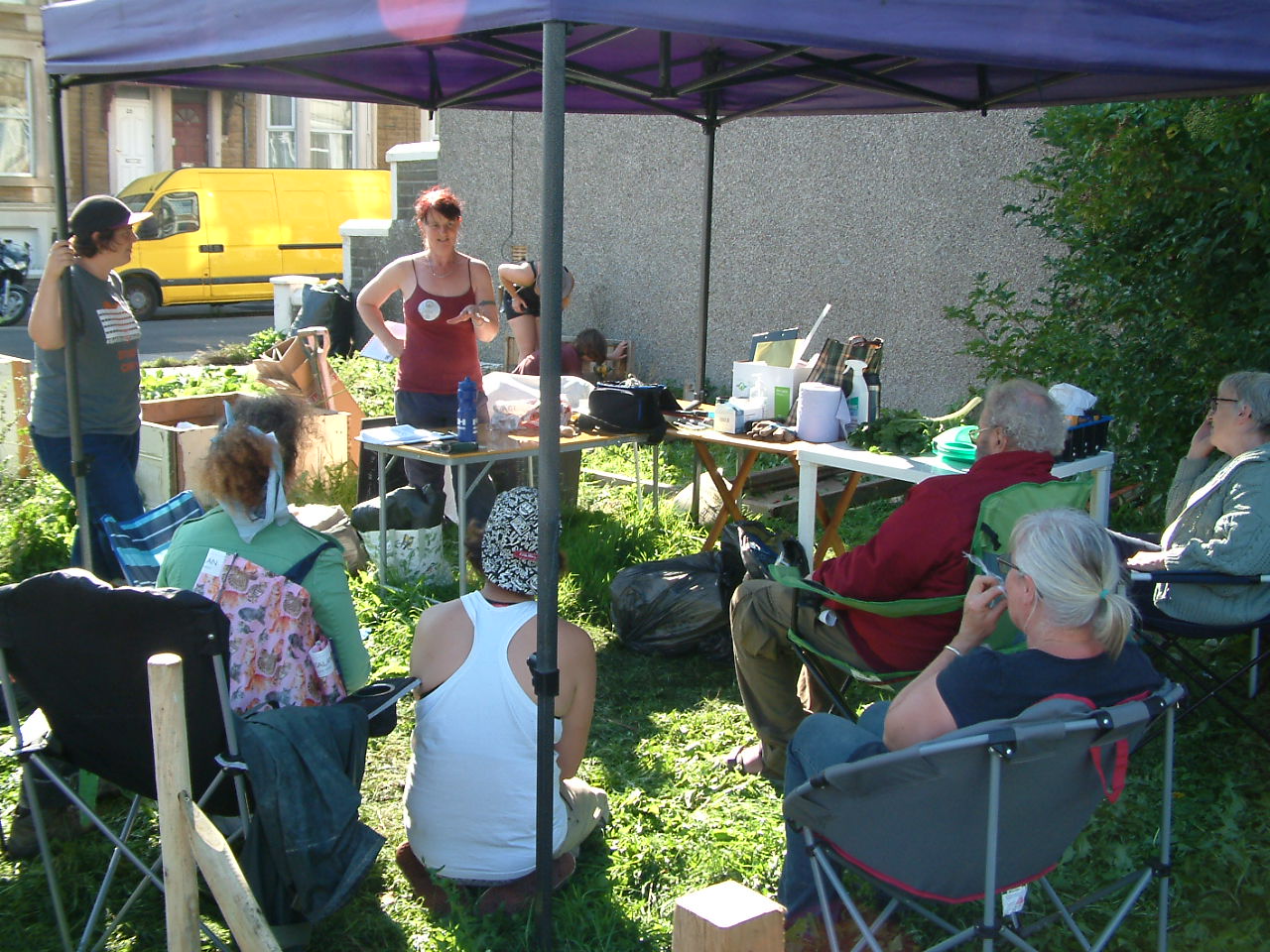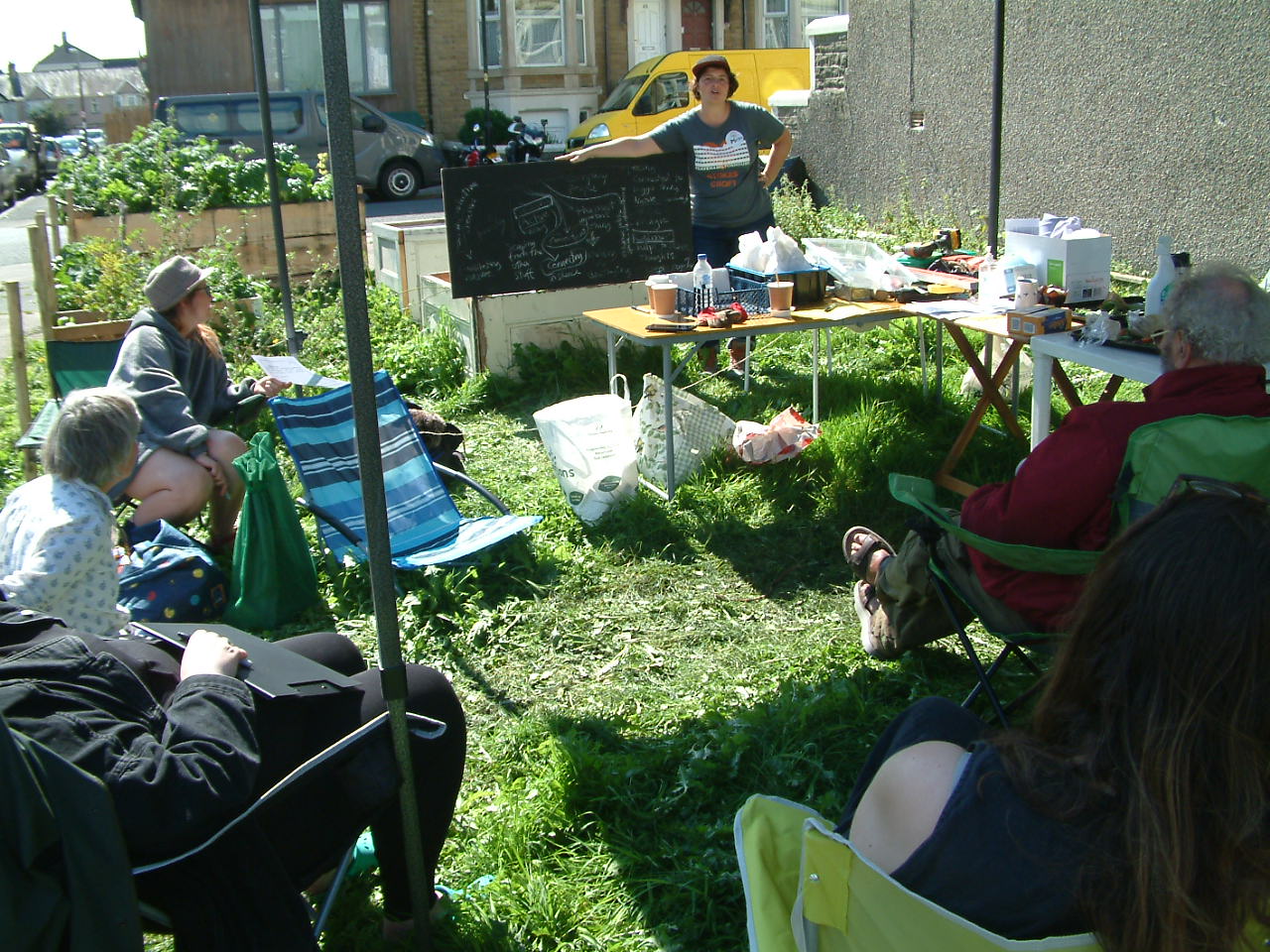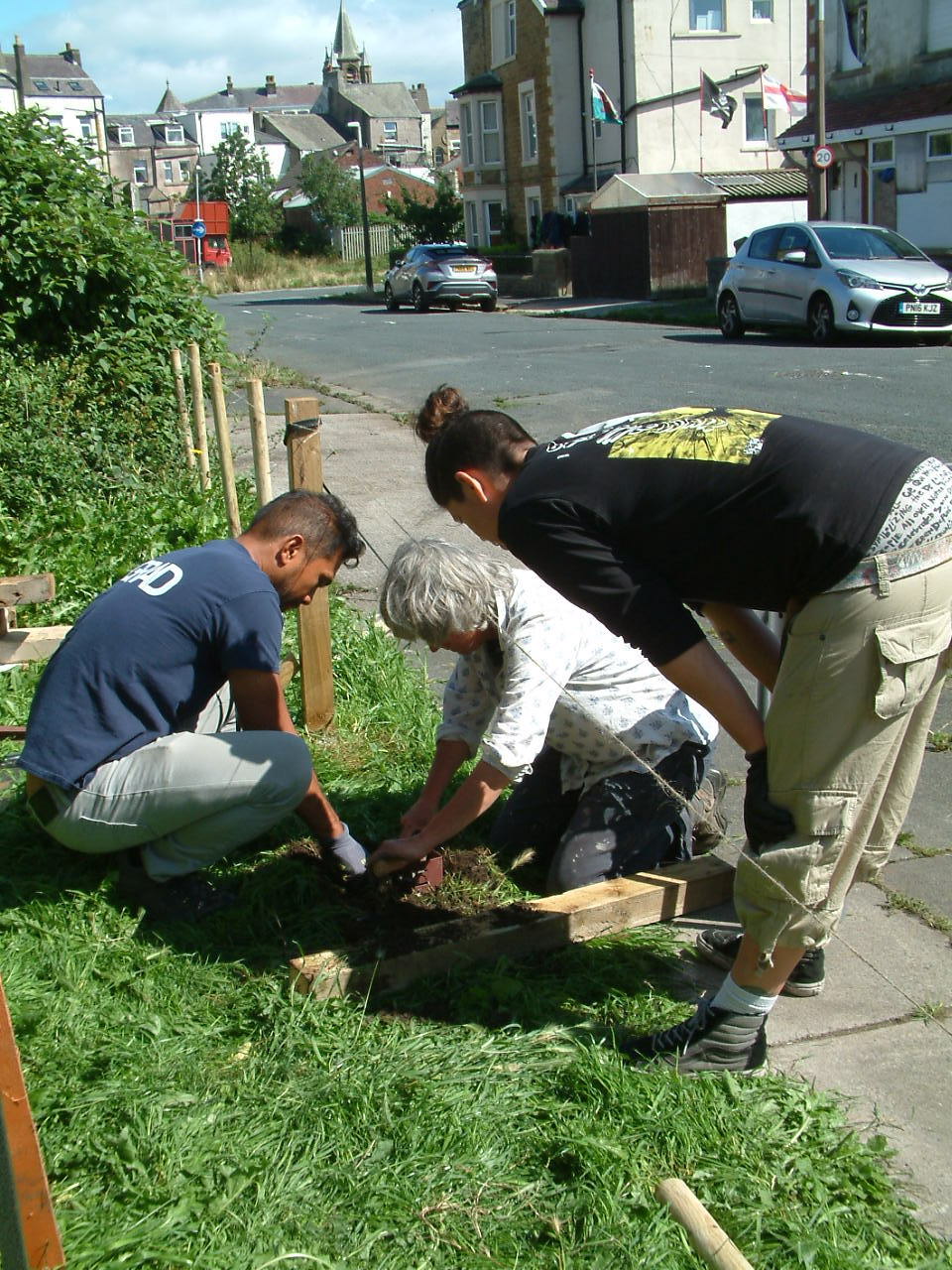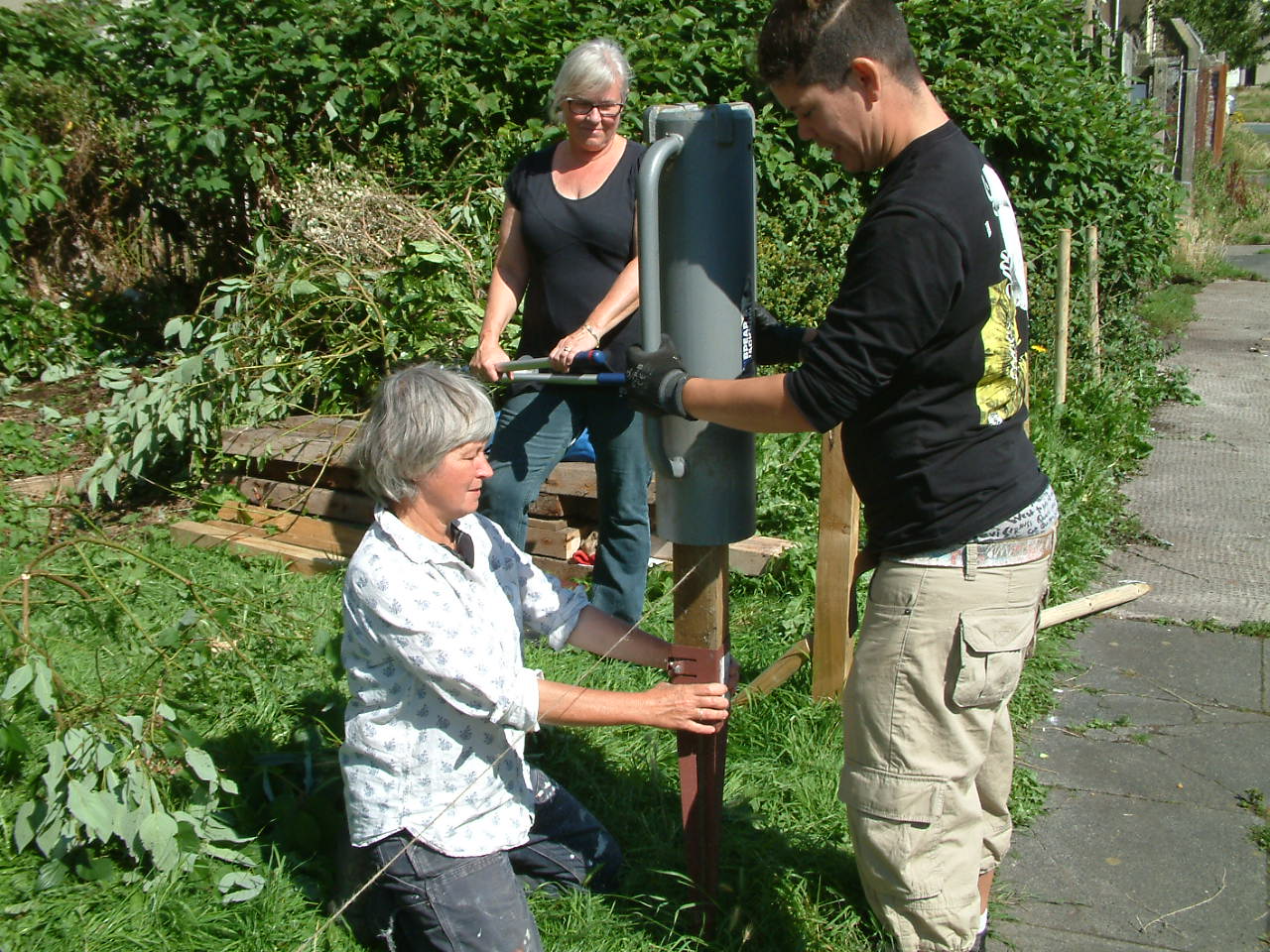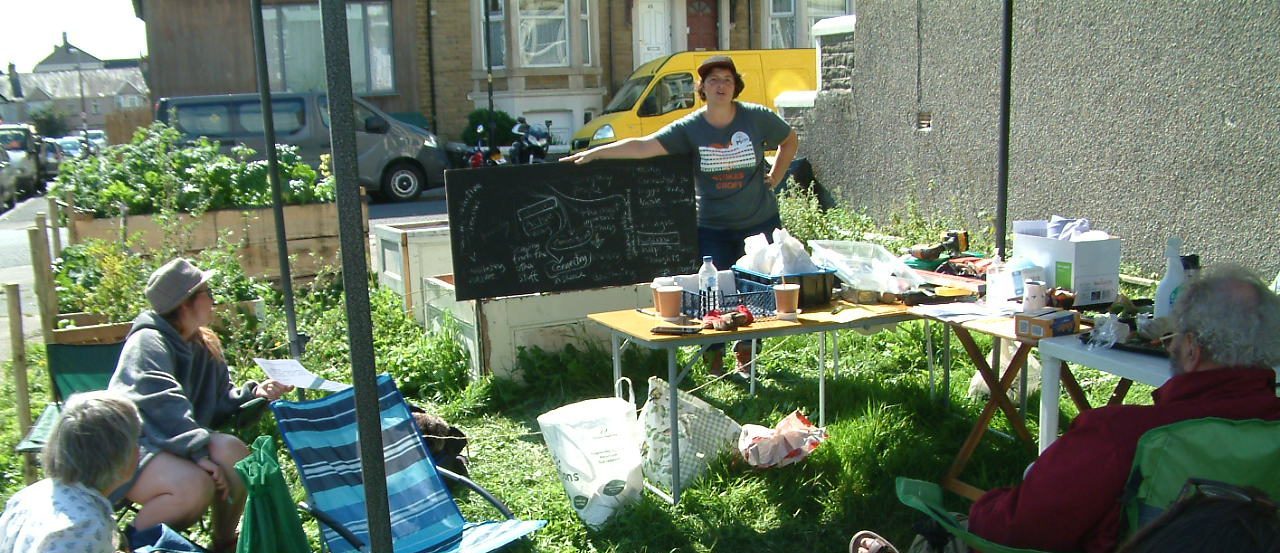The ‘Growing Together’ research team in partnership with ‘The Good Things Collective’ hosted the first of five micro-gardening workshops at a new site in Morecambe’s West End on the 22nd August. The site is a 7 x 20 metre patch of waste ground on the corner of Sefton Road and Cavendish Road. The aim of these workshops is to engage with the local community around issues of well-being, social cohesion and the positive impact that small-scale gardening could have on local community members. The outcome of this project will be a well-being barometer, that will be co-designed with the local community to creatively reflect their feelings and experiences throughout the process.
Prior this workshop, the micro-gardening group had met several times to construct a few raised beds, to clear the site of litter and to design a rainwater catchment system. The group has provided a sign to indicate to others what was happening on site, has created leaflets and a Facebook group in order to share information and invite other local people to get involved.
This workshop was attended by four members of the micro-gardening group and six interested local residents. They saw the research team as community facilitators rather than overseers. We wanted the residents to take both ownership and curatorship of the site, so we consulted with them prior to the project regarding what they would like to accomplish on site that day. The group responded that they would like to construct a low fence around the site because some of them have young children who can’t currently visit the site due to the adjacent road. We provided the materials and brought Tangentfield expertise along with our design and architectural expertise to facilitate the sharing of skills and knowledge in order to enable participants to achieve this. Yet it was very much participant-focussed and participant-led.
The first phase of the workshop began with fence-building, and it was clear that there was a great sense of camaraderie on-site with everyone sharing the work and ‘having a go’ at different tasks. Some participants were less-physically able than others but were still happy to sit and chat, prepare refreshments, clear up and be part of the general hubbub and this was appreciated by everyone.
The fence construction was followed by a well-being based discussion on the topic of ‘why do you enjoy gardening’? Participants were asked to write down their thoughts and then take turns expressing and discussing with the group what they’d written. Gardening was described by members as relaxing, nurturing, socially fulfilling, environmentally fulfilling, sustainable and interesting as shown in the quotes below.
– “I’ve said that for me gardening is relaxing, but not in a quiet, gentle way, but in a busy way. There’s always something to do which is really comforting. And I love seeing everything come to flower and colour in the spring and summer, and I like organising for the following year over winter. There’s never a dull moment with gardening. I love social community gardening.”
– “I think gardening is a very good thing. Very nice and safe feeling. I think lockdown changed things a bit. I’m now enjoying my front garden, which I would never have dreamed of doing before. But this is nice because you sit here with other people.”
– “Gardening for me makes me feel productive and also relaxed and it gives me respite from the pulls on my time, which may be more to do with doing things for other people. Then I can be creative and I feel like I’m facilitating nature, so I quite like a wilderness, but just a little bit supported so it’s not kind of overkept, and I like it because it makes me feel calm and focus on something.”
There was a general agreement that well-kept gardens improved the aesthetics of a local area and therefore improved people’s perceptions of the area. There was a strong sense that participants felt that their work was already having a positive impact within the local community.
The second half of the day focussed again upon constructing the site with groups teaming up to create more raised beds, to install the water catchment system and to prune back and clear the site. Blessed with sunny warm, weather spirits remained high and several people, who were simply passing by, were drawn in and queried us regarding how they might get involved.
The day ended with the members being asked to illustrate and describe their own ideas for a well-being barometer and the ideas they presented will be used as the basis for the next workshop. This was followed by a short discussion on the topic of ‘building fences’ with an overview of how fences have been used by historic communities to protect, to control and to segregate specific areas. There was a shared feeling of positivity and accomplishment expressed by both the Growing Together team and the micro-garden participants as everyone packed up to leave.
If you are interested in attending our future workshops please contact Dr. Mirian Calvo for upcoming dates and further information.

